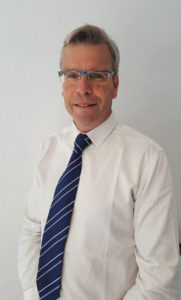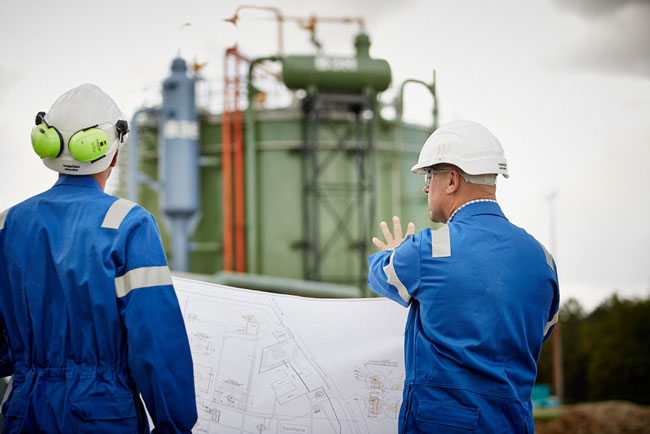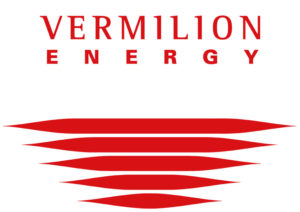
Could you talk to us about Vermilion Energy, its competencies, characteristics and the very way it functions?
Vermilion is the French subsidiary of the Canadian Vermilion Energy oil group, and is based in Europe, North America and Australia. It is a company which is specialized in the redevelopment of mature fields. Since its creation in 1997, Vermilion is committed and recognized in France to exploit French underground resources with respect for the people, the environment and the territories where it is established, while seeking to contribute to the quality of life in communities.
Vermilion is the leading oil producer in France and accounts for 75% of production and 0.5% of French consumption. We are convinced that we can maintain our activity in a sustainable and innovative way thanks to the expertise and continuous commitment of our teams. 600 people work daily on our sites and consider it an immense privilege as well as a great responsibility to produce energy so as to meet the daily needs of French people.
What are your commitments, actions and projects in sustainable development and the energy transition? And how does that influence your business model?
Vermilion is one of the successful and well-managed companies that make sustainable development a central element of their strategy!
Our business model leads us to favour the human aspect and the environment over profits. We work to protect the health and safety of our teams and communities, to treat our partners with respect and fairness, and to ensure environmental stewardship.
Beyond our current activities, we also create strong and mutually beneficial partnerships for the territories. As part of its strategy for the valorisation of secondary energies from its oil production process (hot water, gas), Vermilion has provided free calorific energy over the past ten years – derived from hot water extracted with its oil – to heat 15 hectares of greenhouses in the Landes, 550 housing units in an eco-district in the Bay of Arcachon and soon 900 social housing and public buildings in Essonne, and soon an agricultural operation in the Pyrénées-Atlantiques. Thanks to these circular economy projects, 250 jobs have been created and 11,000 tons of CO2 emissions are thereby avoided every year. Numerous projects to develop the extraction of heat from water or gas are being initiated and studied.
Vermilion wishes to retain its most valuable assets and attract the best talent among its workforce. In a process of continuous improvement, we are doing everything we can to ensure a stimulating and fulfilling work environment designed to adequately answer to their needs, and in which the values of respect, fairness, pride and team spirit are paramount.
Finally, we are very involved in the communities in which we live and work. This is a core and mainstream part of the way we work. Thanks to our peer-based program, to which we devote about 1% of our profits, we support non-profit organizations and local charities in three different ways: by “giving back” (sponsorship and patronage), by “giving time” (supporting associations in which our employees are involved outside working hours) and by “giving together” (voluntary work by our employees during working hours).

How do current and future regulations impact your activities? I am thinking of the EPP and taxes: TICPE…
All the laws passed since 2017 aim to put an end to “made in France” activities, the value providers for our territories!
The French Government wishes to “leave hydrocarbons in the ground” via the Hydrocarbons Law of 2017. This sets new conditions for the exercise of our activity: no new hydrocarbon exploration permit are granted and no license will be renewed (therefore no production) beyond 2040.
With this law, France chooses to import more hydrocarbons and generate 3 times more CO2 emissions! France chooses to deprive itself of the economic advantages of these activities (corporate taxes, taxes on production)! France chooses to put a lot of people out of work! France chooses to end partnerships with high added value for the regions!
Our production, which corresponds to the consumption of the French army, represents an asset for the country’s security of supply, but also a potential source to finance the energy transition. The French hydrocarbon industry, by developing local resources and making the best use of secondary energies linked to their production, has a full part to play in the development of the circular economy.

The European Green Deal should be presented at the end of March 2020. It is already specified that citizens will be at the very heart of this plan, what is it like at Vermilion Energy?
At Vermilion, we undertook a strategic orientation process in 2019 to enable us to build a future for our company and its employees by 2040 (date chosen by the current Government for the end of oil exploitation in France). We are rethinking our business model in order to significantly contribute to the energy transition, to ensure our sustainability, and to guarantee a motivating job for our employees.

Finally, to conclude on all of these major issues, what are your expectations and the message you wish to send to national and European political decision-makers?
Climate change and the reasoned energy transition force us to build upon our responsible management of natural resources. It is with regard to all these constraints and the balance sheet of each form of energy from its source to its use (as well as associated costs) that we should consider the future energy mix.
Vermilion is convinced that “Made in France” oil production is absolutely complementary to France’s objectives. We have a role to play in the energy mix for the coming decades, a role with a strong positive impact on the environment and human development, as well as a favourable territorial impact, in particular through activities associated with the production of hydrocarbons.
We want decision-makers to stop placing energy forms in competition, because they all have their usefulness, and to stop condemning French industry. It is not logical to say that our activity has no future when we are in phase with the main axes of the 2018 EPP: improvement of energy efficiency, development of renewable energies, security of supply, preparing a more flexible and decarbonized energy system by developing our infrastructures, taking into account the economic and social challenges of the energy transition and acting in coordination with the territories.
VERMILION – Headquarters, France: Route de Pontenx – 40160 Parentis-en-Born
Contact: Christelle Dupouy: 05 58 82 96 35 – cdupouy@vermilionenergy.com


















